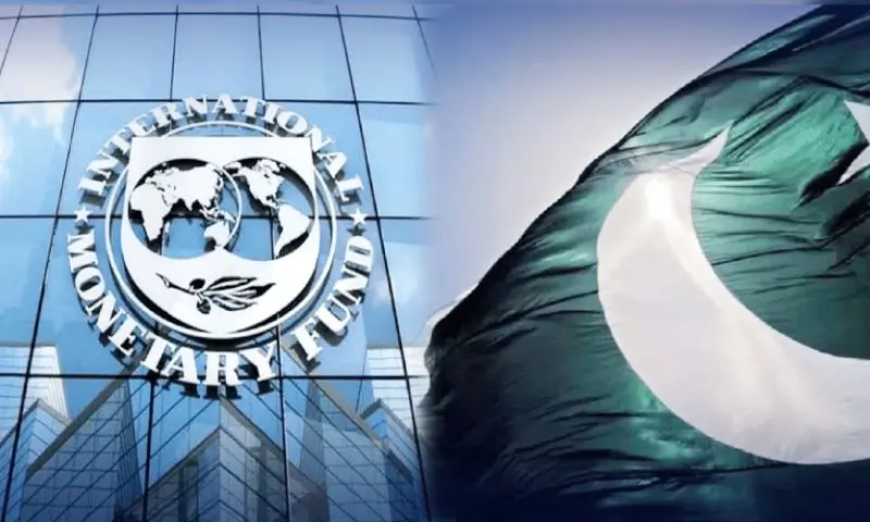IMF Slams Pakistan's Budget Targets, Rejects Several Proposals
In a major development, the International Monetary Fund (IMF) has rejected several important proposals from Pakistan’s upcoming budget plan, calling the targets unrealistic and highlighting weak fiscal discipline. This comes as Pakistan prepares to finalize its federal budget for the next fiscal year amid a fragile economic recovery and rising external debt.

In a major development, the International Monetary Fund (IMF) has rejected several important proposals from Pakistan’s upcoming budget plan, calling the targets unrealistic and highlighting weak fiscal discipline. This comes as Pakistan prepares to finalize its federal budget for the next fiscal year amid a fragile economic recovery and rising external debt.
-
IMF has rejected several fiscal proposals in Pakistan’s budget draft.
-
Budget targets are termed as overly ambitious and unrealistic.
-
IMF demands stronger taxation measures and spending cuts.
-
Concerns over rising subsidies, low revenue projections, and non-transparent expenditures.
-
This could impact the continuation of the ongoing IMF bailout program.
The rejection comes at a time when Pakistan is finalizing its federal budget for 2025–26 under strict IMF oversight. The country is currently under a $3 billion Stand-By Arrangement (SBA) and is negotiating a longer-term loan program expected to be worth $6–8 billion.
-
Pakistan needs IMF approval to unlock future loan tranches.
-
Without IMF support, foreign reserves could drop critically.
-
The rupee and investor confidence may be further shaken.
According to officials close to the matter, the IMF expressed dissatisfaction on several points during technical-level talks with the Ministry of Finance.
-
Revenue projections are seen as unrealistically high.
-
Tax base expansion plans lack credibility and an execution strategy.
-
Energy and fuel subsidies are viewed as unsustainable.
-
Defense and development expenditures are not aligned with macroeconomic reality.
-
Lack of clarity in the state-owned enterprise (SOE) reform strategy.
An official from the Ministry of Finance (on condition of anonymity) said:
“The IMF has categorically stated that Pakistan must stay within fiscal limits and not indulge in populist measures that undermine reforms.”
The IMF has proposed a more austere budget, focused on:
-
Broadening the tax net, especially targeting the retail and real estate sectors.
-
Ending tax exemptions for powerful sectors, including traders and agriculture.
-
Accelerating the privatization of loss-making state firms.
-
Increasing electricity and gas tariffs to reduce circular debt.
-
Enhancing federal-provincial fiscal coordination to cut overlaps.

The IMF’s criticism has left the coalition government led by Prime Minister Shehbaz Sharif in a tight spot.
-
The IMF wants unpopular decisions during an election-sensitive period.
-
Implementing austerity may erode public support and political capital.
-
The government is under pressure from opposition and coalition partners alike.
“The IMF’s rejection shows they are not willing to compromise on fiscal discipline anymore. Pakistan must show serious reforms to win their trust.”
“This budget could make or break Pakistan’s next IMF deal. It must be transparent, balanced, and reform-driven.”
-
IMF programs in developing nations now come with tighter scrutiny, especially post-COVID and due to the Ukraine war’s global impact.
-
Similar conditionalities are being applied to countries like Egypt, Ghana, and Sri Lanka.
-
Oil-importing economies like Pakistan are under greater pressure to rationalize energy subsidies.
The Ministry of Finance is expected to revise its budget and submit a new draft for IMF approval within the next 7–10 days. Final negotiations will determine whether Pakistan secures the next installment of IMF funding.
The IMF’s rejection of Pakistan’s budget targets has sent a clear message: economic recovery must be backed by real reforms, not political populism. As Pakistan navigates this critical juncture, the choices made in the coming weeks will determine the future of its IMF partnership, economic health, and public trust.

 Ateeq Ur Rehman
Ateeq Ur Rehman